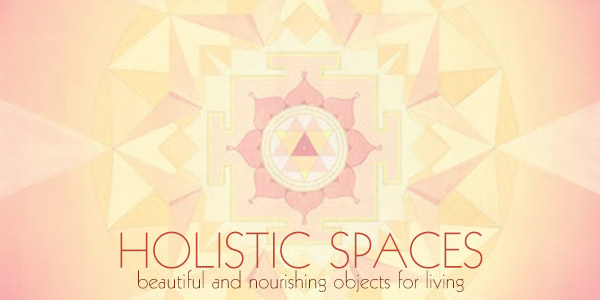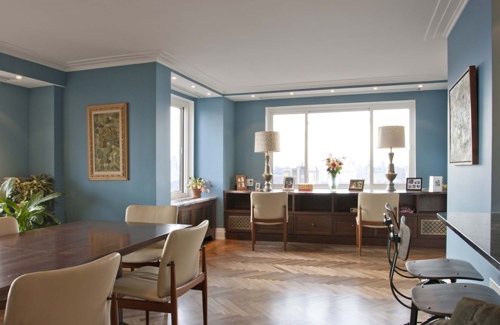featured today on Streeteasy.com
Your home office represents an important area in your home. In feng shui, this area symbolizes your career, wealth and how you nourish yourself in the world. Below are some simple ways for you to incorporate a few changes in your home office to support your career and wealth.
Desk location
The first thing to look at is where your desk is located in relation to the room’s door. I often see clients with their desk facing the wall, leaving their backs to the door. These are major feng shui no-nos. Ideally, you should face your desk so you can see the door, while not in line with directly the door. The most auspicious position is a desk placed diagonally from the door. The desired orientation, called the “command” position, is when you are facing the door and the expanse of the room. It means that you are in command of your life, your career, and can see what the universe has in store for you. The best opportunities will be available to you and you will be able to see them coming. This position minimizes stress and allows the best flow of energy while working.
If space is at a premium in your home and you cannot face the door, set up a mirror so that while sitting at your desk you can still easily see the door in the reflection. Small concave mirrors found in automobile shops are excellent for this job.
Create a separate space
Speaking of space, I understand many of us do not have an entire room for office space in our homes. If you do not have a dedicated room for your office, do your best to separate your desk within the space it is in. Some ways you can do this are with a freestanding bookcase or a room divider, or even with a fabric panel or drape. This is especially important in a bedroom or living room, or you may have difficulty focusing while working, and disengaging when not working. Visual boundaries are very important in keeping your work and play times balanced. At the very least, you can get a beautiful piece of fabric or scarf and cover your desk when office hours are closed!
What are you facing?
What are you facing when you are sitting at your desk? Are you staring a brick wall? Are you looking out at your view? In the feng shui world, we encourage you to face into the room with a good view of the door, while not right in line with the door. As I mentioned earlier, this position puts you in “command” of your life and career. If this is not possible and you must face a wall, there are a few ways to improve this situation. You can put a mirror on the wall behind the desk. Rather than looking a wall that represents a block in your forward movement, the mirror will expand your view and allow you to move ahead in your career. You could also put an inspirational image, an image with depth, or even a vision board. A vision board is simply a collage of words and images of where you see yourself in the future. The idea is, if you can see it, you can have it! And of course, don’t forget the mirror to see the door.
This also brings up the question of having your desk face a window and outdoor view. In my experience, although it’s nice to face a view, it’s not the best position for someone who wants to advance his or her career. Your energy goes out the window and does not stay with your work. Instead, why not have the window to your side so that it’s available for you to view when you want to take a break. But it’s not distracting you from achieving your career and wealth goals.
Desk Clutter
I also encourage you to look at your desk clutter. The purpose is to pinpoint any problem areas you may have regarding career and wealth. Where does your clutter tend to accumulate on your desk? While sitting at your desk, look at the furthest left corner, the furthest middle/top, and the furthest right corner of your desk. Is there a place that you always pile up your paperwork that you plan to get to “one day”? Is there a stack of magazines you’re hoping to go through? Is there a specific area you stash all the mail you haven’t opened yet? Clutter on the top left corner may represent stagnation in your cash flow and money. The middle top symbolizes how people are viewing you, which is your fame and reputation. Maybe you need more visibility and/or recognition. The furthest right corner is the relationship area. This may indicate the need to cultivate new and existing relationships. It’s time for some lunch with people you haven’t seen in months, to just see how they are doing, and get the energy flowing. What is the clutter, and what does it symbolize to you in the area of the desk it’s in?
If it’s cluttered everywhere, well you’re in trouble! Just to be clear, clutter is not always negative, as long as it doesn’t hinder your life or cause guilt and distress. But it may be a problem if it does hurt and prevent you from achieving your goals, keeping you “stuck”. Please do not be too hard on yourself if you do have clutter, take it step by step. I suggest you start with 9 minutes a day. Take a timer and just do 9 minutes of clutter clearing, and then feel good about it!





